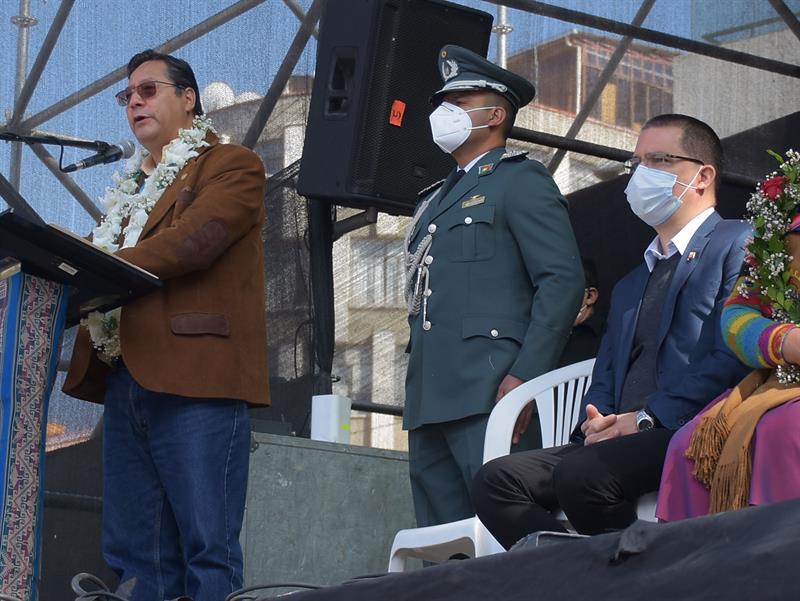RIO DE JANEIRO, BRAZIL – The president of Bolivia, Luis Arce, repealed this Thursday a law of the Transitional Administration that authorized tests for several genetically modified crops that “contravenes the principle of food security and sovereignty” in the country.
“We eliminated the abuse of the previous de facto government, which introduced with a single decree and without blushing, the entire chain of transgenics in our country, in wheat, corn, in everything,” Arce said in a speech at the opening of the Expo Fair “Natural Products of the Pachamama” in a square in the city of La Paz.

Decree 4490 left without validity a norm that the transitional government of Jeanine Áñez approved in 2020, in the middle of the pandemic, which authorized studies on the viability of several GMOs (genetically modified organism) in products such as corn, sugar cane, wheat, cotton, and soybeans that are destined both to supply domestic consumption and for export.
The norm approved by Añez in 2020 meant a radical change in the policy against transgenics during the almost fourteen years that Evo Morales was in the Bolivian Presidency.
The decree, published this Wednesday in the official Gazette, states that “the de facto Government contravenes the principle of food security and sovereignty and the legal reserve, regarding the production, importation, and commercialization of transgenics, established in the Political Constitution of the State.”
Likewise, the Government indicates that this decision is to “guarantee food security and sovereignty; as well as the rights of the components of Mother Earth.”
The Bolivian Constitution prohibits the production and commercialization of genetically modified organisms and elements that damage health and the environment.
In 2005 the use of soybean resistant to the herbicide glyphosate was authorized, and in 2019 the use of the HB4 event was approved for biodiesel, but not for food use.
At the time, the decree issued by the transitional government provoked mixed reactions between those who saw it as an opportunity to increase production and sales and those who considered that it put health and the environment at risk.
Producers and agro-industrial associations of Santa Cruz, the main agricultural region of the country, defended at that time that countries such as Argentina, Brazil, and Paraguay have been using transgenics for more than a decade, with which they consider that Bolivia could triple its annual grain production to twelve million tons.

